The Alkaline Diet
The alkaline diet, is a diet that strives for a healthy balance of acidic and alkaline foods. Acidification of the body, muscles and joints is largely caused by a daily surplus of acid-forming foods.

The alkaline diet, is a diet that strives for a healthy balance of acidic and alkaline foods. Acidification of the body, muscles and joints is largely caused by a daily surplus of acid-forming foods.
Which food is acidic and which is alkaline?Whether a food is acidic or alkaline depends on the residual product after combustion. Did you know that although a lemon tastes sour, it is still very alkaline? |
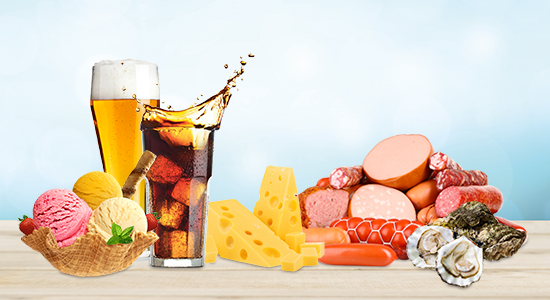
Acid-forming foods leave acidic residues after combustion, such as uric acid, phosphoric acid, tannin and acetic acid. Acid-forming foods include milk and dairy products, soft drinks, coffee, fish, meat, eggs, sweets and cereals.
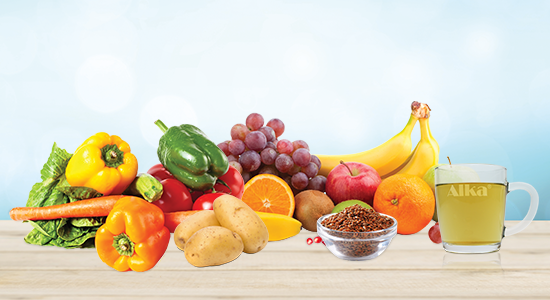
Alkaline foods leave behind alkaline residues after burning, such as iron, potassium, calcium, magnesium and zinc. Alkaline food includes most fruits and vegetables, herbs, nuts and seeds, potatoes, mushrooms, sprouts and germs.
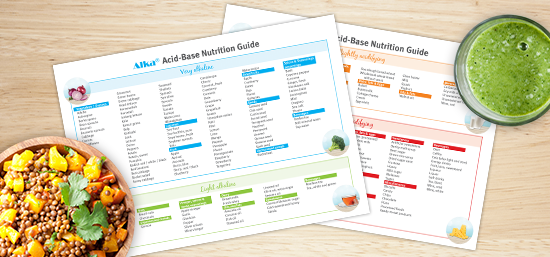
In our Acid-Base Nutrition Guide you will find a comprehensive overview of which foods are alkaline and which are acid-forming. You can download this overview below, view it and possibly print it.

For a healthy acid-base balance, the guideline is that your diet should consist of 80% alkaline and 20% acid-forming products. But, in practice, it appears that with our Western diet (many sugars, animal products, refined and processed products) we only get 30% to 40% alkaline and no less than 60% to 70% acid-forming food per day.
Healthy body function requires sufficient alkaline nutrition. People with acidification symptoms should eat within the ratio of at least 80% - 20% (4 units alkaline to 1 unit of acid-forming food).
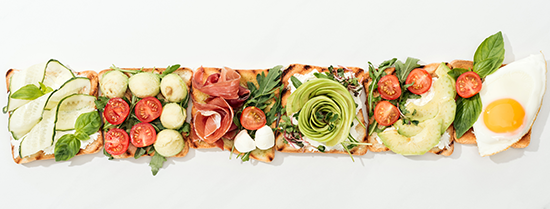
However, because the body gets nutrients from the entire spectrum of foods, it is important to eat varied. If you follow a too one-sided diet for a long time, the body will eventually build up a shortage of certain nutrients. The distribution of 80% alkaline and 20% acid-forming is too one-sided in the long term, therefore we advise that you switch to a ratio of 60% to 40% with time.

A healthy acid balance within the alkaline diet without the risk of depletion of important nutrients can be achieved by maintaining a ratio of 60% alkaline and 40% acid-forming diet, provided you combine this with daily active deacidification. With this you eat sufficiently varied (and tasty) and you actively prevent acidification. With the Alka® products you can actively deacidify daily. They offer the alkaline counterbalance that allows you to enjoy a healthy and varied diet within the alkaline diet. By actively deacidifying, you restore and maintain the healthy acid-base balance of the body.
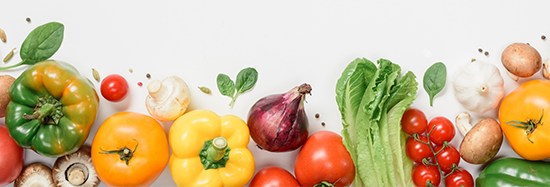
Vegetables are very good for the body. They contain many organic vitamins and alkaline minerals. The best method is to steam vegetables al dente and not to prepare them in the microwave.

Sugars, and refined white sugars in particular, are highly acidifying. If you consume too much of them it increases the chance of chronic acidification. You could substitute white sugar with unrefined cane sugar, or with the plant sweetener Stevia.

Fruit contains many healthy foodstuffs like vitamins, minerals and fiber, but also a lot of fructose which can form acid too. Two pieces of fruit a day is still a sensible guideline!

Soft drinks contain enormous quantities of sugar. A bottle of cola or orange soda contains on average 33% sugar! And “diet” soft drinks containing artificial sweeteners are also extremely acidic for the body. In addition, by taking soft drinks the body is burdened by carbonic acid which is added for the “sparkling bubbles”. Packaged fruit juices are highly acidic because of the way they are produced. It is better to stick to occasional hand-squeezed fruit juices, with all their organic vitamins, minerals and fructose.
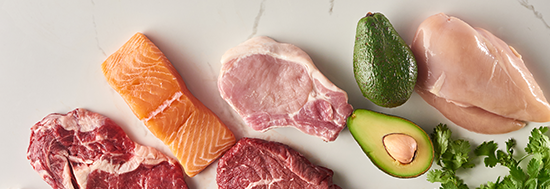
Meat, and red meat in particular, contains a large amount of purines. This is a substance that releases uric acid. Excess uric acid can ultimately lead to joint problems amongst other things. Fish contains a lot of purines too, meaning it also has an acidifying effect. Fish does, however, also contain lots of good, essential fish oils. As long as you are actively alkalizing on a daily basis, then it is a great idea to have fish once or twice a week!

